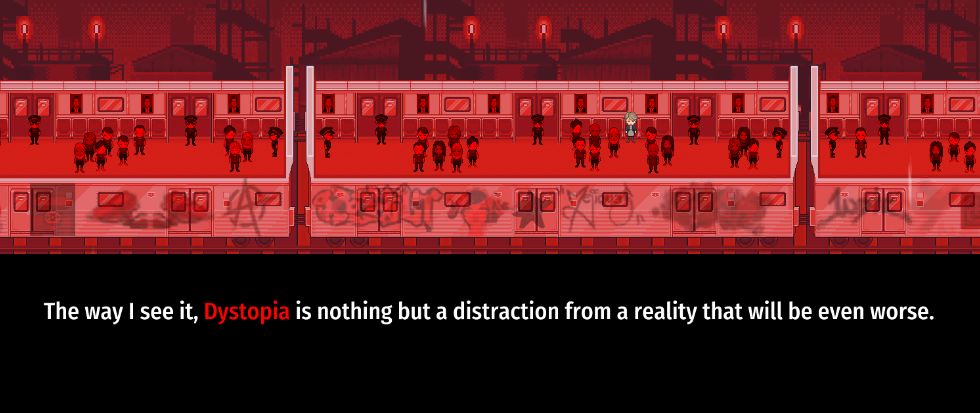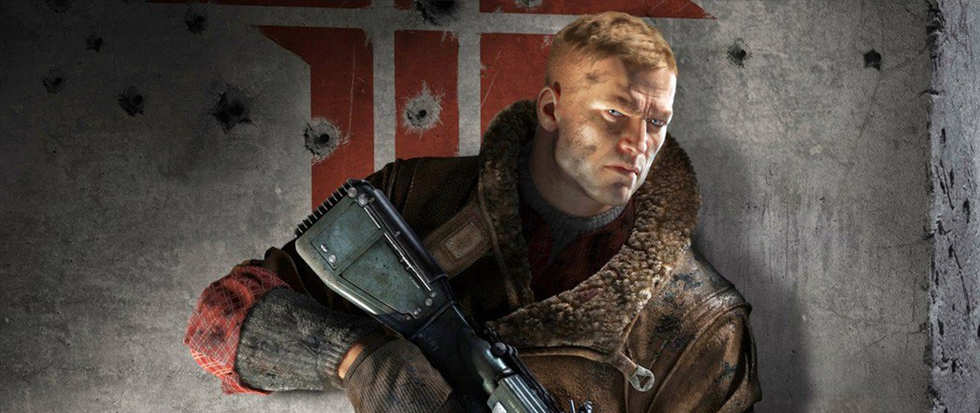
Little Red Lie is an Unflinching Look at Capitalism’s Failings
Little Red Lie is one of these unique things that cuts across what it means to be a “game.” It’s not fun, there’s no points, progression is guaranteed, there’s a lot to read, and little to do except to lie and march with your head hung into oblivion. It is perhaps one of the least fun experiences I have had and that’s what makes it important.
Game has never been a good umbrella term for the interactive digital media that I write about. In fact, play isn’t a good word to describe that moment of interaction either. While there is play happening between the game and I, to describe me as playing Little Red Lie is not give it its due.
The value of Little Red Lie is in how it defies the conventions of game and play. While so many are busy arguing about difficulty in games, Little Red Lie is a several hours series of scenarios that stares into the abyss of capitalism’s worst victims and never looks away. While there is nothing difficult about the progression of Little Red Lie, everything about it is hard.
It’s hard to watch as Sarah’s life unravels. It’s hard to see her family bend until breaking and even harder to realize that there are no silver linings to some stories. It’s hard to watch as circumstances seem to keep playing into Arthur’s favor. It’s even harder knowing that there’s no justice cruel and cathartic enough for him. Little Red Lie is cruel like that. It never forgives, and I’d go so far as to say it punishes you for maintaining hope.
All of this is contained in the superb writing of the game. Every line is hyper real, on a plane above what would be described as “realistic.” While I have my doubts as to how many people speak the way the characters do I have no doubts of the authenticity behind the dialog and the emotions evoked by it. Everything in Little Red Lie feels too real, a mirror held too close to our face to the point of revulsion.
Little Red Lie is painful because it’s a story that many of us already know. The rich get richer, the poor get poorer, lots of folks stuck in between who are able to do little else but slowly suffer as one person or other bleeds them dry. Someone they trusted, slowly draining them of the lubricant that makes modern life tolerable to so many, money.

This is where Little Red Lie punishes that part of you that holds onto the traditional vestiges of game and play. Nothing turns out right. It all goes to hell. Most of the time we’re rewarded for our faith or our trust that maybe, if you work hard enough, if you persevere, things are okay. But Little Red Lie is the opposite of this, it reminds you that sometimes the deck is stacked against you and if you play long enough, the house always wins.
Perhaps my main criticism of the game is that as much as it runs parallel to what we imagine when we think of “games” it still operates within a game framework. While its story, tone, feel, and effect are far outside of “game” territory its functions and methods are firmly rooted in them. It’s seriousness is belied by the sprites that walk around but reinforced by the lovingly drawn characters in close up.
Becoming immersed in the world is easy because of how strong the writing is. But sometimes it is only writing. Being faced with a block of text against a dark screen makes me wonder how else I might have been told this story. Increasingly games like Her Story or even Reigns are further complicating the what might be considered a game.
Perhaps, one day soon, the last few definitions of game will fall and we’ll see new, novel narrative experiences that newly affect a player. Until that day, I’m satisfied for Little Red Lie to be one of the last of the old regime.





